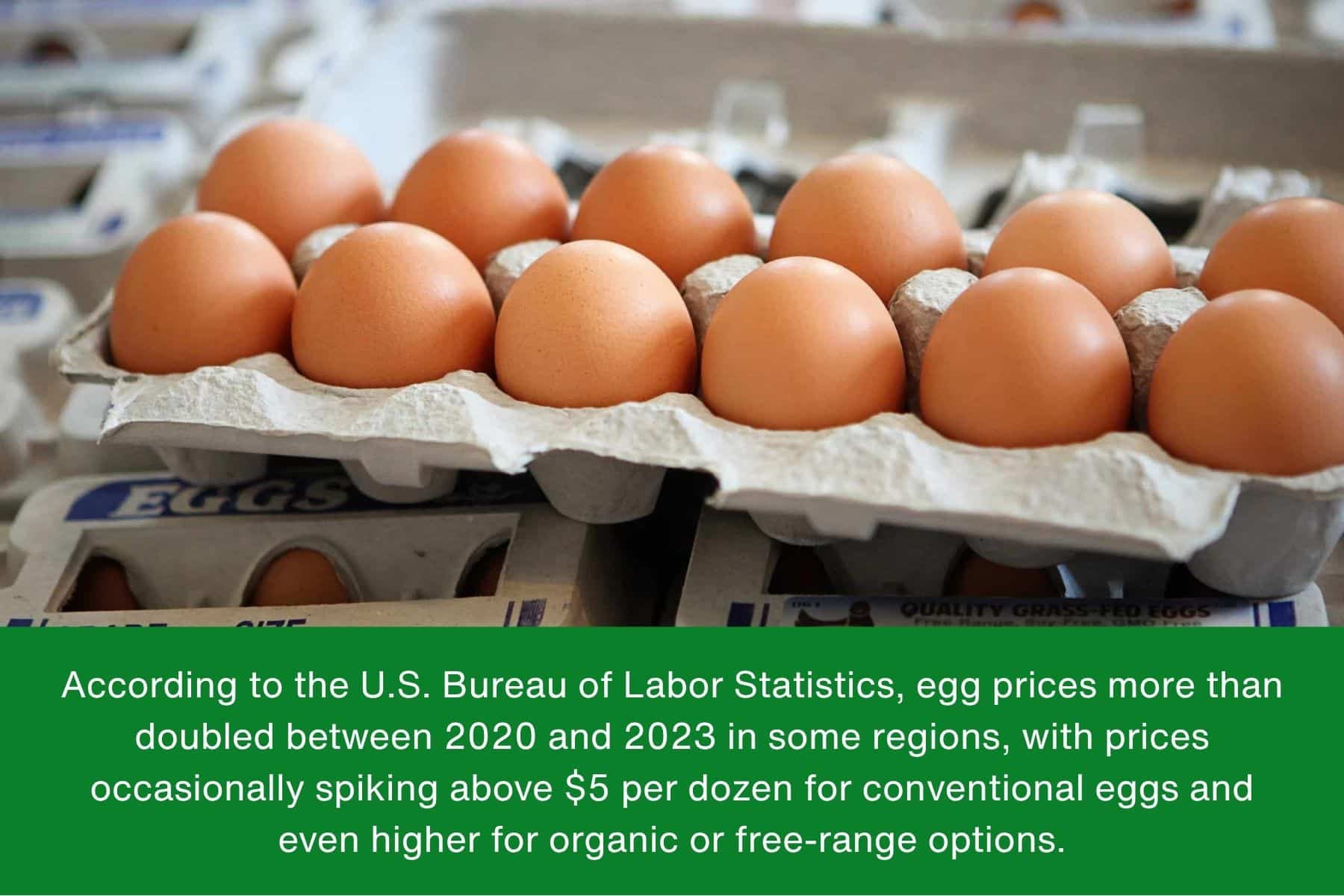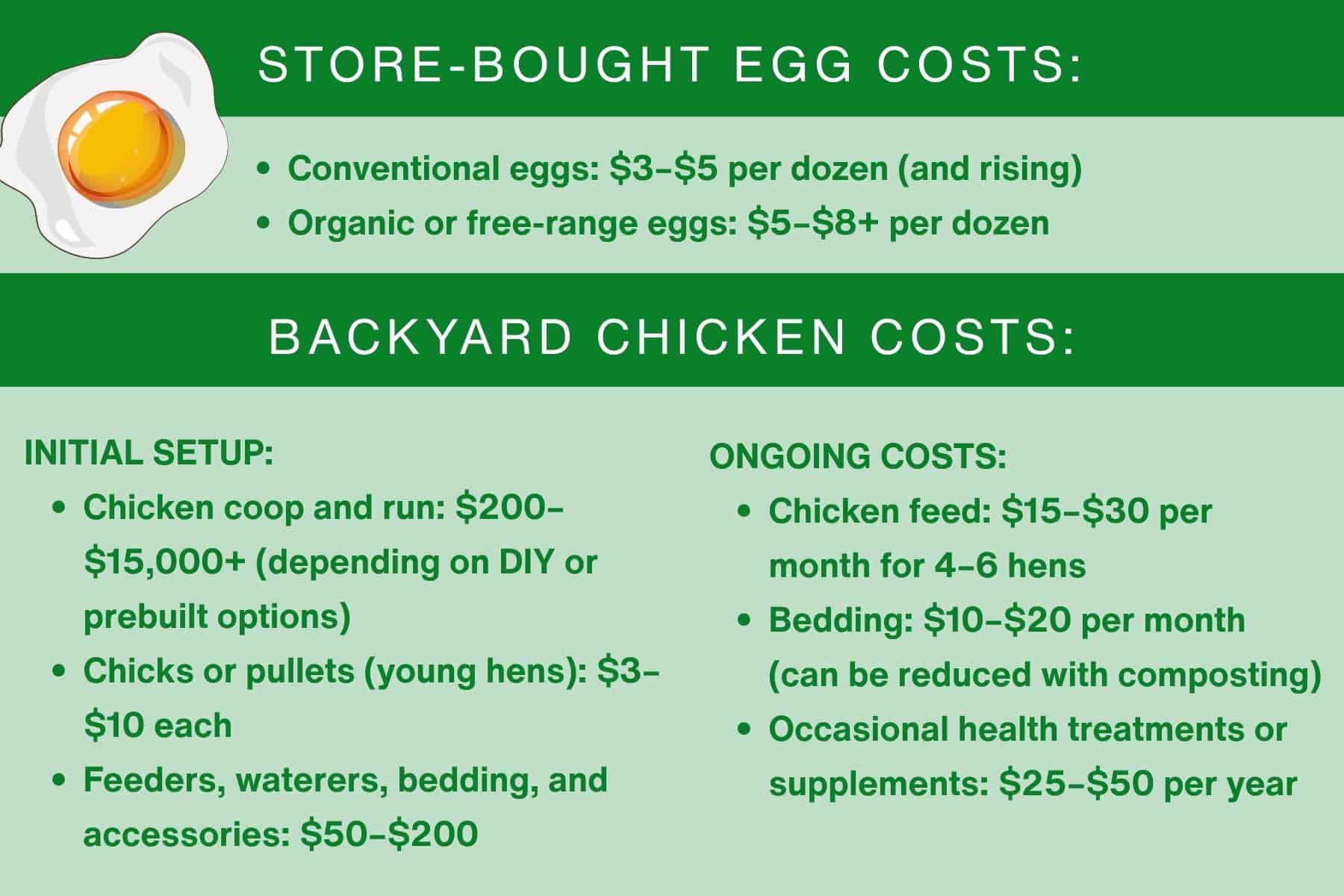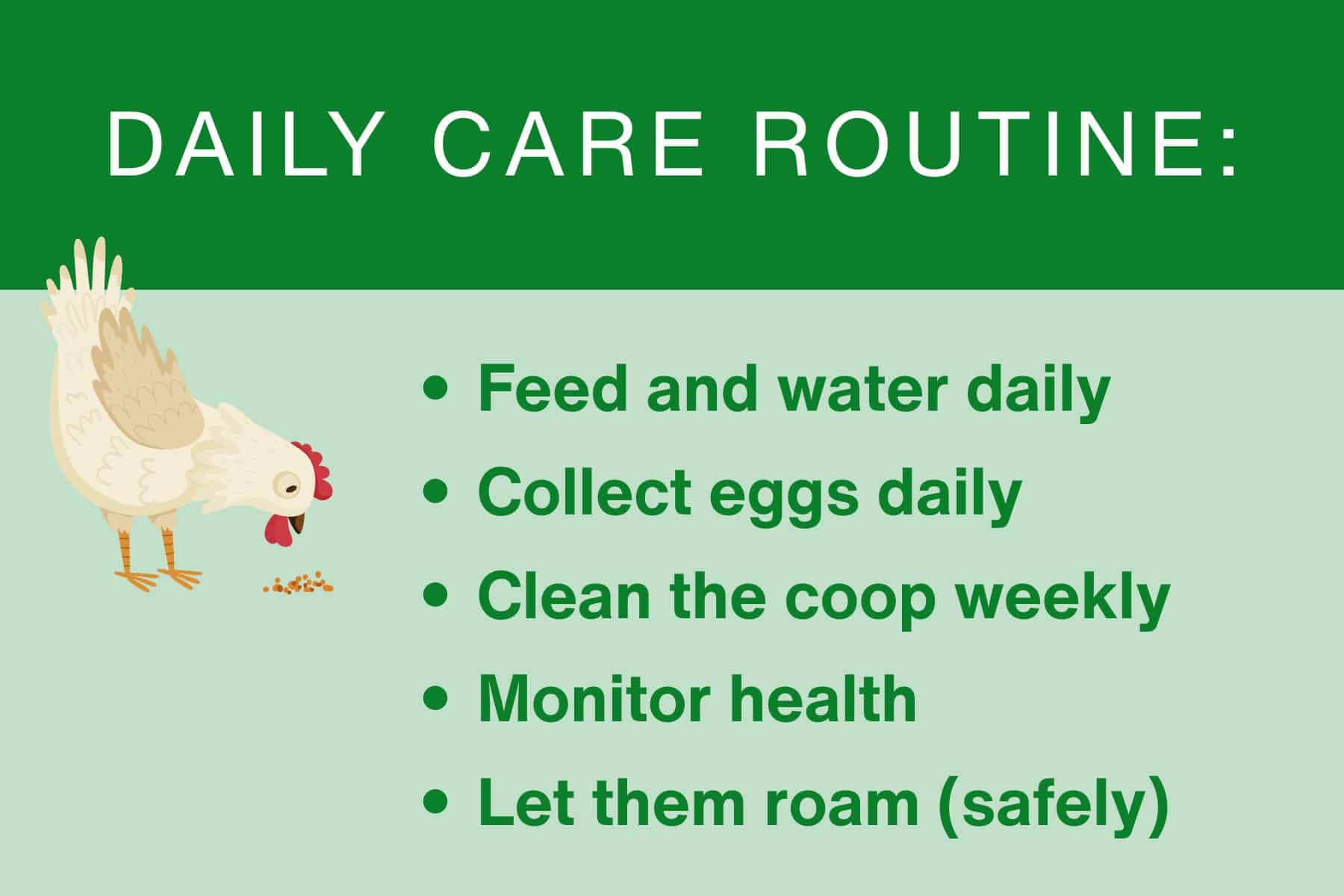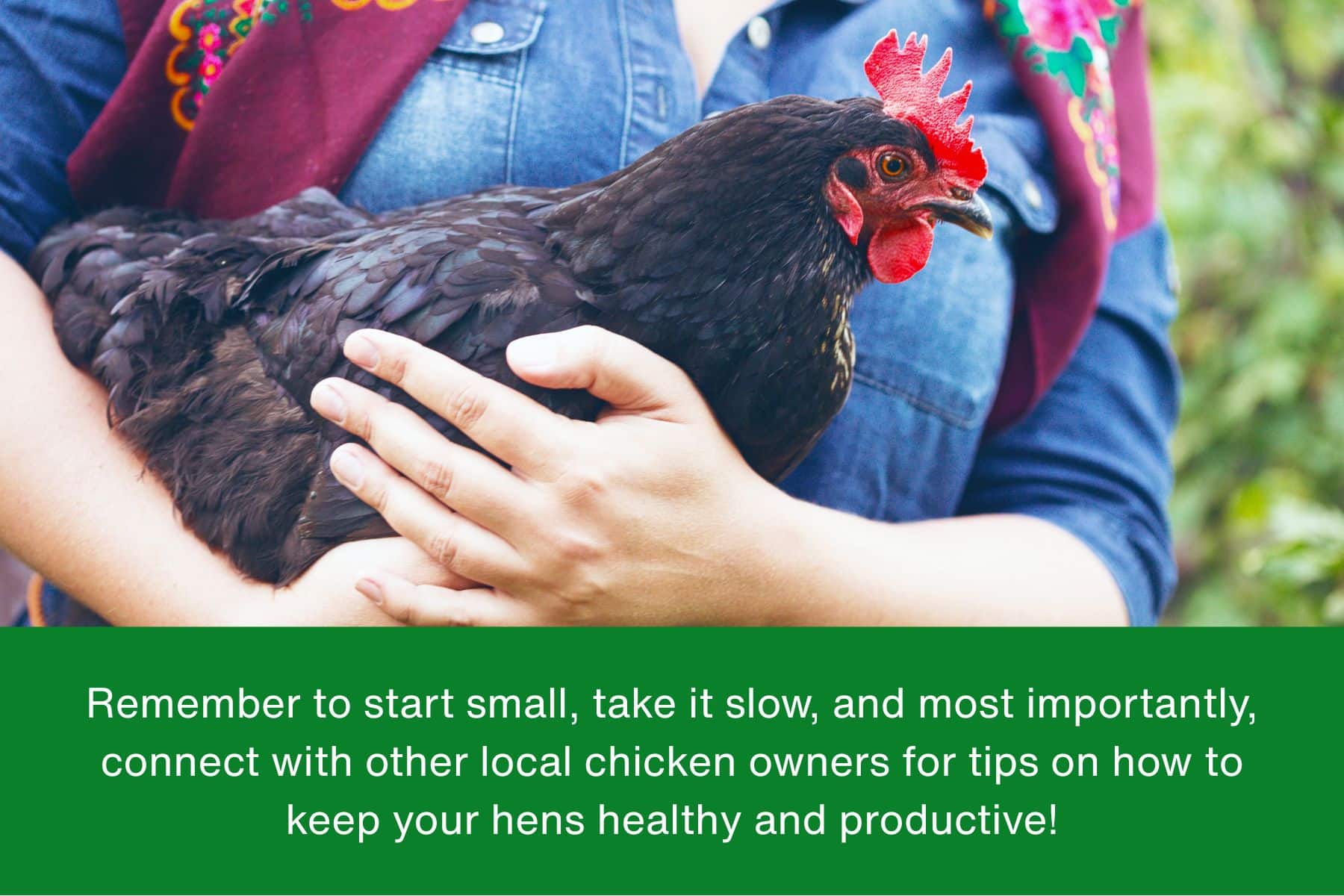Raising Chickens in the Current Climate of Rising Egg Prices: A Practical Guide for Families
As you sip your coffee and groggily make yourself a scrambled egg for breakfast, you realize that you’ve just used the last one in the carton. And you wanted to bake a cake this afternoon! Sighing, you realize you’ll need to squeeze a grocery run into your day.
But when you get to the store and see the current price of eggs, your jaw nearly falls to the floor. Why, eggs cost almost double what they did last year!
You began mentally calculating how to reduce your egg consumption. Should you eat toast for breakfast instead? Maybe use half as many eggs in your potato salad? Stop baking so many egg-heavy desserts?
But then, you have a new thought. What if you had a plentiful supply of eggs on the ready in your own backyard?
Is it time to invest in chickens?
If you’ve never raised chickens before, the prospect can feel both tantalizing and daunting. It can’t be that hard, right? But on the other hand, what if you invest in a fancy coop and equipment only for all your chickens to be killed by a roaming fox?
Do you even need a fancy coop?
Will backyard chickens actually pay off?
Here at The Mobile Chicken House, we offer portable chicken coops that reduce your labor costs while increasing egg production quality. Recently, we’ve seen an increase in families interested in backyard chickens as the price of eggs rises.
Today, we’ll walk you through the various factors you should consider as you think about getting backyard chickens, including pros and cons, cost breakdowns, and how to get started.
Why Are Egg Prices Rising?
Before we can break down the costs of raising chickens vs buying eggs from the store, we need to take a closer look at why egg prices are rising in the first place.
Although inflation plays a factor, the issue is more complex than that. Supply chain disruptions stemming from the COVID-19 pandemic have affected everything from chicken feed to transportation. Labor shortages in agriculture and trucking have made production and delivery more expensive and less reliable.
On top of that, a series of avian influenza outbreaks have swept through commercial poultry operations, killing millions of birds or forcing farmers to cull infected flocks. This reduces the supply of eggs, driving prices even higher.
According to the U.S. Bureau of Labor Statistics, egg prices more than doubled between 2020 and 2023 in some regions, with prices occasionally spiking above $5 per dozen for conventional eggs and even higher for organic or free-range options.

If this spike in egg prices is making you consider the benefits of raising chickens yourself, you should be aware that many of these problems, such as high feed prices, affect backyard chickens as much as they affect commercial egg production. In fact, avian influenza can be a big problem for backyard chicken operations.
But even with that, eggs from backyard chickens still come with one enormous benefit over store-bought eggs: control.
When you have your own chickens, you decide what you feed them and how you care for them. When you crack those eggs in the morning, you know exactly what went into the process and where your food came from.
No more standing at the grocery store, entirely at the whim of the egg market when it comes to price and quality.
Cost Comparison: Store-Bought Eggs vs. Backyard Chickens
Raising chickens does require an upfront investment, but over time, it can save you money, especially if you eat eggs regularly or prefer high-quality eggs from pasture-raised or organic sources.

Store-Bought Egg Costs:
- Conventional eggs: $3–$5 per dozen (and rising)
- Organic or free-range eggs: $5–$8+ per dozen
For a family eating two dozen eggs per week, this adds up to $260–$830 per year, assuming prices stay stable (which they probably won’t).
Backyard Chicken Costs:
Initial setup:
- Chicken coop and run: $200–$15,000+ (depending on DIY or prebuilt options)
- Chicks or pullets (young hens): $3–$10 each
- Feeders, waterers, bedding, and accessories: $50–$200
Ongoing costs:
- Chicken feed: $15–$30 per month for 4–6 hens
- Bedding: $10–$20 per month (can be reduced with composting)
- Occasional health treatments or supplements: $25–$50 per year
A flock of 4–6 hens can produce 15–30 eggs per week, depending on the breed and season. That’s enough for most families and compares favorably to store-bought eggs, especially premium varieties.
Over the course of a year, your investment in a backyard flock can begin to pay off, and by the second or third year, it may be significantly cheaper than buying eggs at the store.
Of course, if you factor in your labor, it might not seem cheaper. But beyond the regular price breakdowns, there are surprising financial benefits of raising chickens you may not have thought of.
5 Surprising Money-Saving Benefits of Chickens
When assessing the financial benefits of having chickens, it’s easy to add up the costs, divide them by the number of eggs you can expect over time, and compare it to the store-bought prices.
But some things are harder to quantify. Here are some money-saving benefits of chickens you may not have thought of.
- Chicken manure makes excellent fertilizer
Using the deep litter method, you can save on labor while creating rich compost for roses, fruit trees, and other plants.
- Chickens can eat table scraps and other food waste
Do you feel guilty when you look into your refrigerator and realize you forgot to eat that spinach you bought, and now it’s limp and slimy?
Give your food scraps to your chickens, and not only does it relieve you of that guilt, but it also reduces your feed costs! You can even get food waste from local restaurants and feed that to your chickens.

- A few things to note:
If you’re planning to compose your chicken poop, don’t feed your chickens meat, as it doesn’t compost well.
You can feed your chickens their own eggshells—in fact, it’s a great source of calcium for them—but keep them in a dish separate from their regular food. Also, make sure to crush the shells first so that your chickens don’t develop a habit of eating their eggs. (If they do develop the habit, you can break it by placing golf balls in the coop—chickens will peck the balls, thinking they are eggs, and quickly realize this isn’t a good idea.)
- Chickens can make great pets
Before asking yourself if your backyard chickens “pay off,” maybe you should ask, “Does my dog pay off? Do my cats pay off?”
The benefits of having a pet are impossible to quantify in monetary terms. And chickens can be great outdoor pets, especially for children who are allergic to dog and cat hair!
Just make sure to do your research and buy a friendly chicken breed.
- You can sell excess eggs
If 4-6 hens give you all the eggs your family needs, it’s not that difficult to double your flock and sell the excess eggs!
And if you want to teach your children financial literacy and the value of hard work, get them involved in the enterprise, teaching them how to care for the chickens and then allowing them to keep the money from the eggs they sell to friends and neighbors.

- Mobile chicken houses regenerate soil
If your property includes farmland, you can use a mobile chicken house to regenerate your soil. This not only keeps your chickens healthy and happy, but it also helps you grow your own food, further promoting a healthy diet while lowering your grocery bill.
Getting Started with a Backyard Flock
Raising chickens may seem intimidating at first, but it’s easier than you might think, especially with some planning and the proper setup.
1. Space Requirements
Chickens don’t need a massive amount of space, but they do need enough room to stay healthy and active. A general rule of thumb is:
- Indoor coop space: 2–4 square feet per hen
- Outdoor run space: 8–10 square feet per hen
If you have a small backyard, a compact coop and enclosed run can work just fine. Many urban and suburban areas now allow chickens, though you should check your local zoning laws and HOA rules first.
2. Choosing a Coop
You can buy a prebuilt coop or build your own. Look for something weatherproof, predator-resistant, and easy to clean. Good ventilation and nesting boxes (one box per 3–4 hens) are essential.
3. Picking the Right Breeds
Some chicken breeds are more beginner-friendly and productive than others. Great egg-laying breeds for new chicken keepers include:
- Rhode Island Reds: Hardy, prolific layers
- Australorps: Gentle and dependable
- Leghorns: Excellent layers (but more active)
- Plymouth Rocks: Friendly and consistent
Start with 4–6 hens. They don’t need a rooster to lay eggs, and smaller flocks are easier to manage for beginners.
Ongoing Care and Maintenance Tips
Once your flock is set up, daily care becomes a manageable routine:

- Feed and water daily: Use gravity-fed feeders and clean waterers to make this easier.
- Collect eggs daily: Helps prevent egg damage and discourages brooding.
- Clean the coop weekly: Replace soiled bedding and spot-clean droppings. Deep clean every month or two. (Alternatively, use the deep litter method, which is less work and creates great compost.)
- Monitor health: Check for signs of parasites, feather loss, or abnormal behavior.
- Let them roam (safely): If possible, supervised free-ranging in your yard can reduce feed costs and keep chickens happy. You can also accomplish this with a mobile chicken coop.
Chickens are generally low-maintenance pets and can live 5–10 years with proper care. They typically lay well for 2–3 years before slowing down, but older hens still contribute to the flock’s dynamic and pest control.
Final Encouragement for Beginners
Starting something new in the middle of a financial crunch might feel daunting, but raising chickens is a doable, down-to-earth step toward self-reliance. With some research, a bit of elbow grease, and a willingness to learn, even first-time chicken keepers can find success.
Remember to start small, take it slow, and most importantly, connect with other local chicken owners for tips on how to keep your hens healthy and productive!

You can learn a lot online, but nothing can replace the wisdom of real people in your community who have been doing this for a long time. Trust us—they’ll be delighted to share their wisdom and offer support.
And soon, you’ll be on the path to cost savings and increased control over what you put in your body.
Here at The Mobile Chicken House, our aim is to support people who want to raise healthy chickens, from small family operations to larger chicken farms. Although our easy-to-maintain mobile chicken houses are not designed for small beginner flocks, one of our mobile chicken coops might be right for you if:
- You want to raise a slightly larger flock of at least 10-12 chickens
- You have a larger piece of land that you’d like to keep fertilized and aerated for optimal plant growth
- You are interested in raising eggs in an efficient, low-maintenance way
If you want to crunch the numbers on how long it will take for your mobile chicken house investment to pay off, you can use our handy profit calculator.
And if you have any questions, feel free to reach out! We’d love to chat with you about your dreams of owning your own egg production and whether or not our coops would be a good fit.





